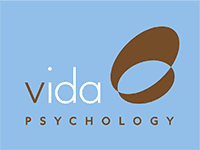15 Mar OCD & PERFECTIONISM: Is this OCD or Something Else?

Is this Perfectionism or something else?
Admittedly there is a tendency in the mental health field to pathologize or identify as an ‘illness’ a range of behaviours typically considered in the range of ‘typical’ or socially acceptable behaviours, such as grief. In defence of the mental health field, this is not the case of perceiving mental or psychological illnesses were there are none, but ensuring that there is a research and treatment pathway for any form of thought, emotion and behaviour that impacts daily functioning i.e. the ability to socially engage and perform in a work role. It is a question of degree an individual is impacted and the length of time that impact lasts for.
OCD and perfectionism is another grey area for most laypeople- some assuming the sole distinction between the two is a question of degree of severity. However, there are other distinctions between the two. It is important to make these distinctions for a number of reasons, but key among them is the tendency for the general public to misuse clinical terms that enter the mainstream via social media and popular culture.
Perfectionism is a pattern of thought, emotion and behaviour which leads people to focus on achieving an end goal at a standard either they have set for themselves or has been systemically set for them, in a way that meets each criteria of that standard exactly or even surpasses it. As with all human behaviour, this mode of functioning has its merits and demerits. If we look at the merits for instance, it can aid motivation, via the escalation of stress (remember, stress is not always a ‘bad’ thing- some levels of stress can be motivating and help forward movement- it’s all about balance!) and levels of achievement. On the other hand, it can also escalate stress to significant levels and can make failure deeply impactful, which may lead to indecisiveness prior to embarking on a task (for fear of failure). Also, perfectionism may be generalizable to a number of areas of persons life from their work to their home to even their social relationships and child-rearing.
On the other hand, OCD or Obsessive-Compulsive Disorder is a more specific pattern of thought, emotion and behaviour, usually lead by a specific area of focus; such as hygiene, health or safety. This area of focus then leads both thoughts (which then emerge as obsessions) and behaviours (which then emerge as compulsions). That is, the person experiences intrusive and unwanted anxiety-causing thoughts that trigger repetitive and ritualistic behaviours in an attempt to overcome such thoughts. These thoughts and behaviours are intrusive and feel as if they are not under that person’s control.
For example, a person who has been diagnosed with an OCD may have intrusive and negative thoughts about their health, which then cause them to feel highly anxious. To manage that anxiety regarding their health they may develop a pattern of behaviour, such as ensuring they avoid enclosed spaces with other people which might increase their risk of contamination (such as trains, elevators, airplanes and GP waiting rooms) and also sanitizing their person after each exposure to other people.
So, despite the similarity across things such as the degree of task-based focus, the difficulty with changing focus from that targeted task and the task-oriented preoccupation both might involve, they are indeed different.
Author: Ishma Alvi – Psychologist


Sorry, the comment form is closed at this time.